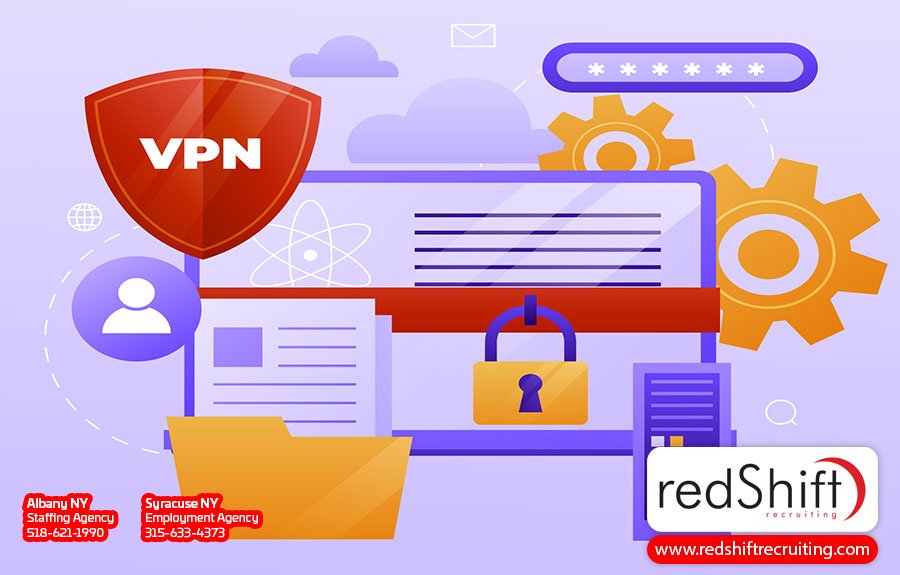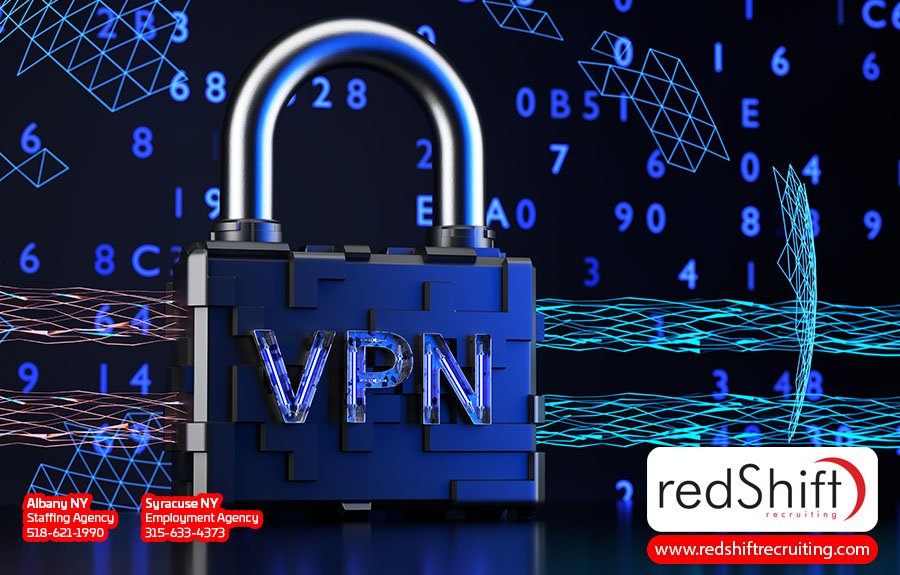Leveraging VPN and VPS for Global Collaboration
Collaboration knows no bounds! Blending talents across continents, companies are redefining teamwork and crafting teams that are as diverse as they are skilled. However, orchestrating teamwork across oceans and time zones poses new challenges, and the road to seamless collaboration isn't always smooth. Fortunately, modern solutions such as Virtual Private Networks (VPNs) and Virtual Private Servers (VPSs) can bridge the gap between global teams and ensure productive engagement regardless of physical distances. These digital tools empower companies to transcend geographical limitations, fostering interconnectedness and a cooperative environment. With the ability to facilitate secure remote access and bypass geo-restrictions, VPNs offer a shield against the hindrances of distance, while VPSs provide the foundation for hosting resources essential to international collaboration. In this article, we'll delve into the exciting potential of VPNs and VPSs to unlock unparalleled levels of global teamwork and help blended teams thrive.
The Challenges of Blended Teams
In today's globalized business landscape, collaboration transcends physical borders, allowing companies to weave together talents from around the world. Enriched with diverse perspectives and skill sets, these blended teams are redefining traditional notions of teamwork. However, they also face unique challenges, such as varied time zones, cultural differences, and language barriers. Geographical distance can mean team members may have different working hours, resulting in delayed responses and prolonged decision-making processes, while the diverse cultural backgrounds within the team can lead to misunderstandings and misinterpretations of messages. These hurdles can impede communication and coordination, making it difficult to align schedules and work together effectively.
Seamless collaboration within blended teams begins with equipping members with the right tools and technology, including a secure and reliable connection to company systems and accounts. However, this critical access can often become a stumbling block, as issues with access restrictions, suspicious logins, resource hosting, and data sharing can abruptly bring productivity to a standstill. The complexities of connecting individuals scattered across the globe can lead to web traffic bottlenecks and connection disruptions, resulting in blocked functions and delayed access for team members. Accessing essential resources such as VPS hosting solutions and dedicated hosting for running applications or other software can lead to further complications. Additionally, network security takes on added complexity as administrators must manage remote logins and access to ensure secure and controlled data sharing while adhering to security standards and protecting against data breaches. Meanwhile, legitimate users accessing the virtual server from different geographic locations may encounter access issues or be blocked and flagged as suspicious logins.
This intricate interplay underscores the need for solutions that both enhance security and alleviate access challenges. Leveraging VPNs (Virtual Private Networks) and VPSs (Virtual Private Servers) is one way for businesses to address these issues, enhancing network security while enabling global team members to collaborate effectively, regardless of their physical location or internet service provider. A VPN service creates a secure tunnel between an employee's device and the company network, encrypting all data transmitted over the internet. This not only protects sensitive information from potential hackers but also allows remote team members to access company resources as if they were physically present in the office. Meanwhile, a VPS offers dedicated virtual environments within shared physical servers, allowing team members to collaborate efficiently while maintaining control over resources and security settings. Incorporating these technologies into your global collaboration strategy ensures that your remote team members have uninterrupted access to important systems and accounts, boosting productivity and enhancing data security.
VPNs: Bridging the Geographic Gap
VPNs, or Virtual Private Networks, create a secure connection between your device and a remote server operated by the VPN provider. This secure and private network spans the internet, bridging the geographical gaps among team members and fostering effortless file sharing, resource access, and communication. A VPN works by establishing a secure pathway between a user's device and the VPN server. Your internet traffic is encrypted and routed through this server, masking your location data and providing online privacy while protecting against malware and other cyberattacks by making it more difficult for hackers to intercept and steal your data.
With a VPN service, team members from various locations can securely connect to a centralized virtual server, allowing access to blocked functions or restricted resources essential for efficient collaboration. Moreover, using a VPN app enables remote workers to seamlessly authenticate their identities while concealing their true locations, minimizing security alerts that may flag legitimate logins as suspicious due to varied geographical origins or IP addresses. Additionally, VPN services address connectivity issues arising from reliance on physical servers that are not easily accessed by all team members, addressing latency or data transfer speed concerns.
Using VPNs with dedicated hosting capabilities also enhances online privacy and security by encrypting all communications within the private network and preventing your sensitive data from being intercepted or monitored during transmission. VPN servers can offer additional online protection by blocking malicious websites or ads and bolstering defenses against malware, phishing attacks, ransomware attacks, and data breaches.
Finally, VPNs can be used to access a variety of resources and websites that are blocked or restricted in certain countries, including streaming media, social media, artificial intelligence applications, APIs, and news. The latest trends in VPN technology include the use of newer tunneling protocols, such as WireGuard, which offer heightened security and performance compared to older protocols. VPN providers are also increasingly offering advanced features such as split tunneling, which allows users to choose which traffic routes through the VPN and which does not. By configuring your VPN to optimize security and access, you can ensure smooth collaboration and effective communication among globally dispersed team members while keeping their online activities private and secure.
VPSs: Empowering Global Team Collaboration
Similar to VPNs, a Virtual Private Server (VPS) empowers global teams by providing virtual servers that can be accessed remotely by team members from any location. The power of VPS hosting solutions lies in their ability to provide a consistent and reliable computing environment for all team members, regardless of their physical location. With a VPS server, there is no need for the entire physical server hardware or expensive dedicated servers. Instead, these virtual servers act as centralized hubs where team members can store data, host websites or applications, and collaborate on projects.
Using VPSs for hosting provides several advantages for global team collaboration. For example, unlike shared hosting, where multiple users vie for resources on the same server, a VPS provides a dedicated server-like experience. The setup of a VPS involves partitioning a physical server into separate virtual machines, each allocated for a specific use. This means each individual can have their own dedicated virtual machine while still utilizing the shared hosting capabilities provided by the web hosting provider. These virtual islands offer enhanced control, allowing you to tailor the environment to your team's requirements. This ensures reliable performance and provides a private space where team members can access necessary tools and data without any interference from others, making it a perfect fit for hosting essential resources such as applications, files, or databases.
Additionally, VPSs offer a range of security features, including firewalls, intrusion detection systems, data encryption, and DDoS protection, providing enhanced security and control over online activity. Data is stored within a secure data center, protecting it from potential breaches or unauthorized access, and teams can establish encrypted connections through VPS servers to ensure privacy during communication and collaboration. Detached from the virtual neighborhood of shared hosting and operating independently within this data center ecosystem, a VPS not only ensures heightened security but also offers the freedom to scale resources to meet your team's evolving needs. With secure access to shared resources and encrypted communication channels, your team can collaborate seamlessly on global projects regardless of geographical barriers.
Understanding the Difference: VPNs vs. VPSs
Although VPNs and VPSs both contribute to enhancing remote team collaboration and connectivity, they do have distinct functionalities and applications that cater to different aspects of the process. A Virtual Private Network (VPN) acts as a secure tunnel that allows you to encrypt your internet connection, providing privacy and anonymity. On the other hand, a Virtual Private Server (VPS) is essentially a single physical server that is partitioned into multiple virtual machines, allowing users to have their own dedicated resources within a shared physical server.
In the context of global collaboration, leveraging both VPNs and VPSs can be incredibly beneficial. VPNs are more suitable when you need to securely access company data from remote locations or connect with team members across different regions. By encrypting your internet connection, VPN technology ensures that your sensitive information remains confidential even when accessing it over unsecured networks. Additionally, VPNs can be used to bypass geo-restrictions, allowing users to access websites and services that are blocked in certain countries. This can be useful for businesses that need to access resources or collaborate with partners in other countries.
On the other hand, VPSs offer a better solution for businesses looking to establish a centralized virtual environment for their teams spread across different locations. Because a VPS can be used to host a variety of applications, it can be useful for businesses that need to deploy applications or store data in a secure environment. With VPS hosting, each team member can have their own isolated virtual space on a shared server, enabling efficient collaboration while maintaining control over resources and security settings.
For example, consider a multinational corporation with offices in various countries where employees need secure access to company files from anywhere in the world. In this scenario, implementing VPN technology would allow employees to connect securely from any location while safeguarding sensitive information during transmission. However, if this corporation also requires seamless collaboration among its globally dispersed teams by sharing files and applications centrally, opting for VPS hosting would provide them with dedicated resources within one unified virtual environment.
VPNs and VPSs can also be used together to provide a more secure and reliable environment for global collaboration. For example, a business could use a VPN to connect to a VPS, which would then provide a secure and dedicated environment for collaborative work. Incorporating both VPNs and VPSs into your business's digital infrastructure allows you to optimize global collaboration by ensuring secure access, protecting sensitive data, and enabling efficient teamwork. While VPNs enhance online privacy and security by encrypting internet connections and safeguarding data during transmission, VPSs provide a secure and dedicated environment for collaborative work. By understanding the difference between VPNs and VPSs in the context of global collaboration, you can make contextually relevant decisions for your business's specific needs.
Ensuring Data Security and Privacy
In the modern digital world, safeguarding sensitive information is paramount, and businesses must take comprehensive measures to protect their data from unauthorized access and breaches. To overcome these challenges, businesses frequently turn to solutions that offer robust data security and privacy enhancements, including VPNs and VPSs. By partnering with a reputable VPS hosting provider, businesses can gain access to dedicated virtual environments within shared physical servers, isolating and protecting sensitive information. Through this approach, team members can collaborate within a secure and controlled space, minimizing the risk of data leaks or compromises. Additionally, implementing a robust VPN service further fortifies data security and privacy. By encrypting internet connections and creating secure tunnels, VPNs establish an additional layer of protection, making it significantly more challenging for malicious entities to intercept private information during transmission. Combining the strengths of VPS hosting and VPN services equips businesses with a comprehensive security framework that addresses the complexities of modern remote collaboration while safeguarding critical data.
Choosing the Right VPN and VPS Solutions
Selecting the right VPN and VPS solutions for your business requires careful consideration of several key factors. To begin, finding the best VPN service requires evaluating a range of features such as encryption protocols, server locations, and compatibility with different operating systems. A top-tier VPN service should offer robust encryption to keep your data safe during transmission, have servers strategically placed to ensure optimal download speeds, and be accessible across all your devices, including mobile devices. This means choosing a VPN or VPS solution that works seamlessly across various platforms, such as Windows, macOS, iOS, and Android.
While using free VPN services or shared VPS plans may be tempting, be aware that these often come with limitations that could compromise your security and performance. In contrast, a reputable paid VPN service will be able to provide more reliable performance as well as the top security and encryption methods recommended by security experts. Look for a VPN that offers features like the WireGuard protocol, which provides faster speeds and better security compared to other protocols. Additionally, consider a VPN that offers additional services, such as encrypted messaging or ad-blocking features, to further enhance productivity.
Similarly, when considering VPS solutions, assessing your business's unique needs is key. Take into account factors like server locations, storage space, speed, protocols, and customer support offered by different providers. A reliable VPS hosting provider should offer scalability to accommodate your growth, consistent server uptime to ensure uninterrupted operations, and compatibility with various operating systems. Before settling on a VPS plan, inquire about the provider's data backup and recovery protocols to prevent potential data loss. In addition to these technical aspects, prioritize a VPS solution that aligns with your security requirements. Look for providers that implement robust security measures, including firewalls, intrusion detection systems, and regular security updates, to keep your data safe within the virtual environment, and make sure physical servers are located in secure facilities with strict access controls, as this adds an extra layer of protection for your data.
By meticulously evaluating VPN and VPS options based on these factors, you can make informed decisions that enhance your business's security and performance while fostering efficient remote collaboration.
Frequently Asked Questions
What Are the Potential Risks or Drawbacks of Using VPNs and VPSs for Global Collaboration?
Although VPNs and VPSs offer many advantages for global collaboration, there are also potential risks and drawbacks to be aware of. Mitigating the risk of security breaches or data leaks is always a high priority, and even the best VPN connection or VPS server cannot offer foolproof protection against hackers. In some cases, even authentic logins using a VPN app may inadvertently trigger alerts from internet security providers. Additionally, long distances between collaborators can result in performance issues such as slower connection speeds or latency problems.
Another drawback is the reliance on technology for collaboration, as work can be disrupted or halted due to technical difficulties or failures. Furthermore, cost is an important factor to consider, as using VPNs and VPSs may require subscription fees or upgrading hardware to support the necessary infrastructure.
Despite these risks and drawbacks, with proper precautions and regular monitoring, you can still leverage VPNs and VPSs effectively for global collaboration while minimizing potential issues.
Are There Any Legal or Regulatory Considerations When Using VPNs and VPSs for International Teamwork?
For international teams using VPNs and VPSs, there are some legal and regulatory considerations to keep in mind. Different countries have different laws regarding internet usage, data privacy, and online security, and it's crucial to understand these regulations before diving into global collaboration using these tools. For example, some nations may restrict or ban VPN usage altogether, while others may have stringent regulations on data storage and transfer. By familiarizing yourself with all relevant laws and regulations from the start, you can ensure that your team stays compliant and avoids any potential legal issues.
How Can VPNs and VPSs Improve Productivity and Efficiency in Global Collaboration?
VPNs and VPSs help companies seamlessly connect with team members from other sites and different time zones, sharing ideas and collaborating on projects without the issue of geographical barriers. VPNs give you secure access to shared files and resources, ensuring that everyone is working on the latest version without any hiccups or delays, while VPSs provide a reliable virtual environment where you can scale your operations effortlessly, accommodating an ever-expanding team without worrying about hardware limitations. By addressing some of the most common pitfalls of global collaboration, most VPNs and VPSs can help businesses boost their productivity and improve efficiency to build a more effective blended team.
Can VPNs and VPSs Support Real-Time Communication and Collaboration With Team Members From Different Countries?
From brainstorming ideas to making important decisions together, VPNs and VPSs can facilitate real-time communication and collaboration among team members from across the globe. With a VPN, you can securely connect to your company’s network, allowing you to access shared files, databases, and applications from anywhere in the world. This allows team members to easily participate in video conferences, instant messaging chats, and collaborative document editing sessions with colleagues, regardless of their physical location. Additionally, VPSs provide virtualized servers that can be used to host communication tools like email servers or project management platforms. These technologies enable instant communication and smooth information sharing among team members across borders, ensuring that distance is never a barrier when it comes to working together effectively.
What Are the Cost Implications of Implementing a VPN Service or VPS Solution?
Cost is an important consideration when determining if VPN and VPS solutions are right for your company. VPNs and VPSs require investing in reliable hardware and software, as well as allocating resources for ongoing maintenance and support. Additionally, depending on your specific requirements, there might be other expenses such as subscription fees or usage charges from service providers. While the costs may vary depending on your organization's needs and the scale of collaboration, it is important to weigh them against the potential benefits these solutions can offer.
Conclusion
From the virtual bridges built by VPNs to the isolated realms of VPSs, each solution presents distinct advantages and holds the potential to empower borderless collaboration while amplifying connectivity, security, and efficiency. With the increasing trend of remote work and distributed teams, leveraging VPNs and VPSs has become essential for effective global collaboration. These tools not only surmount geographical barriers but also ensure the integrity of data security and privacy. As you delve into the realm of possibilities offered by VPNs and VPSs, keep your business's unique challenges and objectives in focus. By selecting tailored solutions that resonate with your team's requirements, you can foster smooth communication and collaboration across borders, ultimately ushering in heightened productivity and success in today's interconnected world.
Article Author:
Ashley Meyer
Digital Marketing Strategist
Albany, NY






